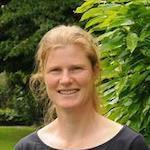Christian Ethics of Farmed Animal Welfare is an academic research project funded by the Arts and Humanities Research Council (AHRC) between 2018 and 2022. An interdisciplinary research team led by Professor David Clough worked with 14 partner organizations including UK churches, farming and veterinary groups, and Christian animal advocacy organizations. In the final year of the project, researchers worked with school teachers and academic staff in theological education alongside 8 new partner organizations working in religious education to produce educational resources related to the research.
The project produced a range of academic outputs that set out a new Christian approach to farmed animal welfare, provided a practical framework for churches and other organizations to use to inform their food policy and purchasing, and produced educational resources for schools, teachers of religious education, and theological educators, to engage with areas related to project research.
The Research Team would like to acknowledge with gratitude the extensive work and invaluable contributions that representatives of partner organizations, RE teachers, participating schools, and academic staff in theological education, made to the project. They are listed below.
Research Team
The CEFAW Research Team is an interdisciplinary group of five researchers
Our Partners
The CEFAW Project involves 14 institutional partners:
UK churches
- Church of England
- Church of Scotland
- Church in Wales
- Methodist Church
- Roman Catholic Church
- United Reformed Church
Other organizations
- AQA
- Anglican Society for the Welfare of Animals
- Catholic Concern for Animals
- Chester Diocesan Board of Education
- Church Investors Group
- Common Awards partnership
- Compassion in World Farming
- Culham St Gabriel’s
- Farmington Institute
- NATRE
- Pan-Orthodox Concern for Animals
- Pasture for Life
- Quaker Concern for Animals
- Saint Peter’s Saltley Trust
- Salford Diocese Department of Education
- Veterinary Christian Fellowship
Teachers
- Simon Archer
- Constantinos Athanasopoulos
- Stacey Cowell
- Hannah Derbyshire
- Mel Gilbert
- Scarlett Hayward
- Jessica Lowe
- Daniella Murphy
- Nadia Nadeem
- Anna Neale
- Lyn Oakes
- Monika Timkovicova
- Claire Willmott
Theological Education Staff
- Cherryl Hunt
- Sarah Lawrence
- Joel Pierce
Schools
- Lostock Gralam Church of England Primary School
- Mount Carmel, Accrington
- Our Lady’s, Blakely
- Sacred Heart, Westhoughton
- Saighton Church of England Primary School
- Smallwood CE Primary
- St Bede’s, Blackburn
- Tilston Parochial Primary School
- Woodchurch High School

.png)




